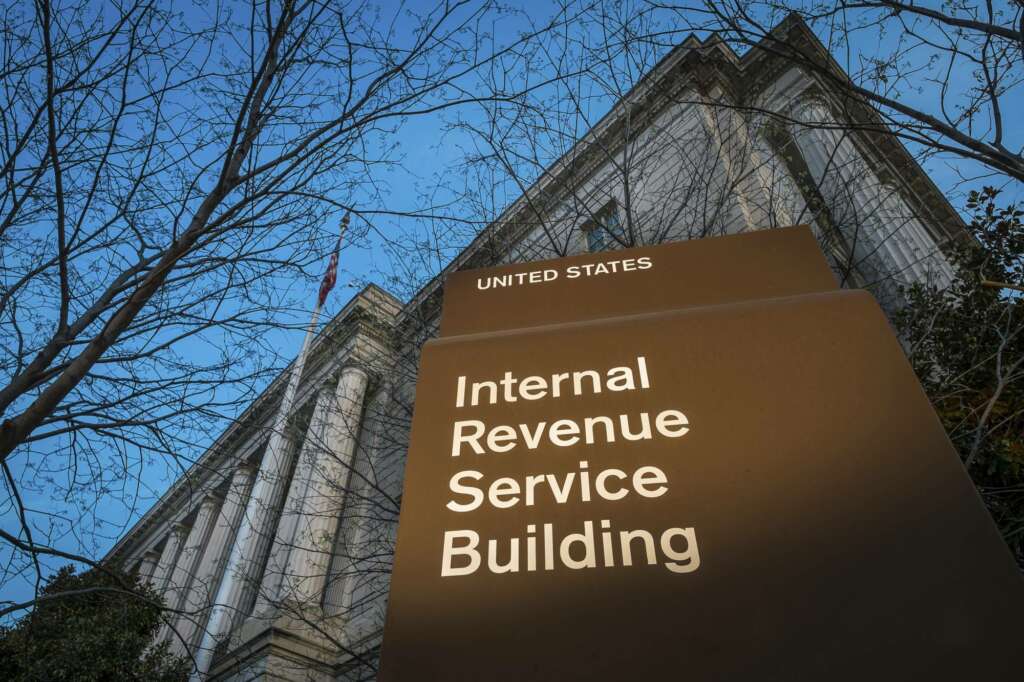
The Internal Revenue Service is making some changes in its collection program to lessen the burden on taxpayers who owe outstanding tax debts and are trying to cope with the economic fallout of the COVID-19 pandemic.
The IRS said Monday that it’s making it easier to set up payment agreements and offers in compromise as part of a new Taxpayer Relief Initiative.
“The IRS understands that many taxpayers face challenges, and we’re working hard to help people facing issues paying their tax bills,” said IRS Commissioner Chuck Rettig in a statement. “Following up on our People First Initiative earlier this year, this next phase of our efforts will help with further taxpayer relief efforts.”
Darren Guillot, the IRS Small Business/Self-Employed deputy commissioner for collection and operations support, discussed the new relief options in a new edition of the new IRS blog, “A Closer Look.”
“Earlier this year, we provided extensive relief and temporarily adjusted our processes to help people and businesses through our People First Initiative, which was in effect for the first months of COVID,” he wrote. “While it’s been important for us, and for the nation, to resume our critical tax compliance responsibilities, we continue to assess the wide-ranging impacts of COVID-19 and other difficulties people are experiencing.”
Under the new Taxpayer Relief Initiative, the IRS is offering several new forms of relief:
- Taxpayers who qualify for a short-term payment plan option now have up to 180 days to resolve their tax liabilities, instead of 120 days.
- The IRS is providing flexibility for some taxpayers who are temporarily unable to meet the payment terms of an accepted offer in compromise.
- The IRS will automatically add certain new tax balances to existing installment agreements, for individual and out-of-business taxpayers, as opposed to automatically defaulting the agreement, which can complicate matters for those trying to pay their taxes.
- Some qualified individual taxpayers who owe less than $250,000 can set up installment agreements with the IRS without providing a financial statement or substantiation if their monthly payment proposal is enough.
- Some individual taxpayers who only owe outstanding taxes for the 2019 tax year and who owe less than $250,000 can qualify to set up an installment agreement without a tax lien notice filed by the IRS.
- Qualified taxpayers who already have an existing direct debit installment agreement with the IRS can now use the Online Payment Agreement system to propose lower monthly payment amounts and alter their payment due dates.
The IRS offers options for short-term and long-term payment plans, including installment agreements via the Online Payment Agreement system. The service is mainly available to people who owe $50,000 or less in combined income tax, penalties and interest, or to businesses that owe $25,000 or less combined that have filed all tax returns. The short-term payment plans can now be extended from 120 to 180 days for certain taxpayers.
The IRS has expanded its installment agreement options to get rid of the requirement for financial statements and substantiation in more circumstances for balances owed up to $250,000 if the monthly payment proposal is sufficient. The IRS also modified its installment agreement procedures to further limit the requirements for federal tax lien determinations for some taxpayers who only owe outstanding taxes for last year.
In addition to payment plans and installment agreements, taxpayers can also contact the IRS to ask for a temporary delay of the collection process. If the IRS decides a taxpayer is unable to pay, it can delay collection until the taxpayer’s financial condition improves.
The IRS is now offering extra flexibility for some taxpayers who temporarily can’t meet the payment terms of an accepted offer in compromise.
To provide relief from tax penalties, the IRS is highlighting reasonable cause assistance for taxpayers with failure to file, pay and deposit penalties. First-time penalty abatement relief is also available for the first time a taxpayer is subject to one or more of these tax penalties.
Many taxpayers can apply through IRS.gov for some forms of relief, including installment agreements, without ever having to talk to a representative.
Other requests, including the new flexibility offered under the Taxpayer Relief Initiative, can be made by contacting the number on the taxpayer’s notice or responding in writing. However, when they ask for relief, the IRS said taxpayers need to be responsive when they receive a balance-due notice.
“If you’re having a tax issue, don’t go silent,” Guillot said in a statement. “Please don’t ignore the notice arriving in your mailbox. These problems don’t get better with time. We understand tax issues and know that dealing with the IRS can be intimidating, but our employees really are here to help.”


